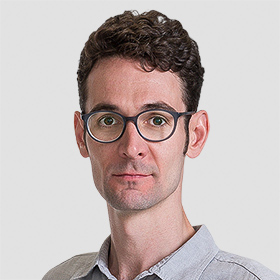More than four years after he was banned from leaving his native China, artist Ai Weiwei is free to travel again after Beijing authorities returned his passport.
“When I got it back I felt my heart was at peace,” the artist told the Guardian on Wednesday afternoon, just hours after police handed him back the travel document and informed him he was free to go overseas.
“I feel pleased. This was something that needed to be done,” added Ai, who has long been a vocal critic of China’s leaders. “I was quite frustrated when my right to travel was taken away but now I feel much more positive about my condition.
“I think they should have given it back some time ago – and maybe after so many years they understand me better.”
The artist posted a celebratory Instagram message alongside a photograph of himself posing with the document. “Today I got my passport,” it read.
Ai said his first trip would be to Germany, where his six-year-old son has been living since last year.
Asked why authorities had made the move, the artist said: “I have no idea why. This is not something I can say.”
Police seized Ai’s passport in April 2011 after he was arrested at Beijing airport during a major Communist party crackdown on political activists who it feared were trying to topple the regime.
The artist spent the next 81 days in the custody of security services and says he endured protracted interrogations and psychological torture.
“You scold the government all the time; you talk to foreign press all the time. We have to teach you something,” one interrogator, named only as Mr Li, told the artist, according to an account in the New York Times.
“The conditions were extremely tough,” one source close to the artist told Time magazine shortly after his release. “It was psychological abuse. It was mental abuse.”
Ai, who is now 57, seemed to step back from political activism following his release in 2011, although he continued to criticise the government and staged a daily protest against his travel ban by placing fresh flowers outside his Beijing studio each morning.
The artist vowed to continue his morning ritual “until I regain the right to travel freely”.
There had been recent hints that authorities were considering taking Ai off their travel blacklist.
In June he was allowed to open his first solo exhibition on Chinese soil at Beijing’s 798 art district. “It’s surprising,” Ai told reporters at the show’s opening. “It feels different.”
In an article timed to coincide with that exhibition, the Global Times, a pro-Beijing tabloid, wrote: “Perhaps it’s time to turn over the page on Ai’s political controversy.”
Fans, friends and relatives of the Chinese artist celebrated Ai’s freedom on Wednesday.
“AT LAST AT LAST AT LAST!!!!!!!!!!!!” wrote one of the artist’s 110,000 Instagram followers.
Zhao Zhao, one of China’s most celebrated young artists, said: “I feel happy for him personally. At least he now can travel abroad to attend the opening ceremonies of his own exhibitions. He has missed at least 200 of them due to his passport problem. Ai Weiwei has sacrificed a lot for being a dissident in China.”
Ai Dan, the artist’s brother, said: “This is very good and exciting news. It shows that whoever took his passport away might have some new understanding of him.
“He is not a criminal so he has every right to have his own passport,” he added.
Others reacted more cautiously. “Congratulations Mr Ai Weiwei on getting your passport back. But having a passport doesn’t mean you can get out of China freely,” Liu Xiaoyuan, a prominent human rights lawyer, wrote on Twitter.
热烈庆祝艾未未先生拿回了护照,但有护照并不意味着能自由出境。哈哈。 https://t.co/Zar9rVI0pq
— 刘晓原律师 (@liu_xiaoyuan) July 22, 2015
Beijing is currently waging what activists describe as an unprecedented crackdown on human rights lawyers, having rounded up more than 240 people since a wave of detentions began on 10 July.
Two weeks after the Communist party offensive began, at least six people are still missing and are believed to have disappeared into police custody, just as Ai Weiwei did in 2011.
Zhao, who worked as Ai’s assistant for seven years, said: “Although Ai Weiwei has got his passport back, it doesn’t necessarily show that China’s [human rights] situation is improving. We have seen many lawyers and activists being detained or harassed by the authorities recently.
“China still needs to make efforts to improve its freedom of speech record and now that he is able to travel abroad Ai Weiwei will be able to better communicate the situation in China to the world in that sense,” Zhao added.
Asked about the crackdown Ai Weiwei said: “Of course, everybody is concerned.”
The artist said he appreciated the plight of other government opponents who were still prevented from leaving China. “I experienced what it is like when you don’t have the basic travelling conditions which everybody should have, so that is always my concern.”
Ai said he was not worried that authorities might allow him to leave China but then force him into exile by blocking his return. “I’ve never worried about that. I think if the authorities let me go I’m sure they will let me back. They have been quite reasonable.”
Additional reporting by Luna Lin











